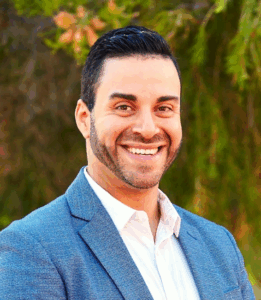From Alexandria to Australia, the same silence follows care – it just speaks a different language
Interested in our initiative? Submit your email to receive an invite to the alive collective.
Menu
Interested in our initiative? Submit your email to receive an invite to the alive collective.
From Alexandria to Australia, the same silence follows care – it just speaks a different language

Written by Michael Elwan – Lived Experience Solutions (LEXs)
This new series is written from lived experience. It includes personal reflections on illness, loss, and caregiving. Please read Michael Elwan’s writer-in-residence series with awareness and care.
Alexandria, 2002.
The rain was steady that evening, tapping against the window of a small psychiatrist’s private clinic. I was sixteen, trying to explain my mother’s confusion and fear. The psychiatrist listened, cigarette balanced between his fingers, and finally said that what I described had no cure. She would need medication every day for the rest of her life, or lifelong admission to hospital. Then he added, almost gently, that hospitals could be dangerous places.
His words landed with the weight of a sentence. I imagined the scenes I knew from films (patients restrained, humiliated, forgotten) and felt the narrowness of my choices. Hospitalisation felt cruel; daily medication felt impossible. I walked home through rain-slick streets, defeated and unsure how to proceed. Yet I already knew what I would do. She was my mother. Obligation and love were the same word.
The long work of secrecy
When I told our remaining relatives, they nodded gravely and agreed she should stay home. Sympathy filled the room for a few hours, then thinned into absence. No one lived close enough to help. The responsibility became domestic routine: measuring medication, managing voices, hiding the truth.
I built walls that looked like discretion. Neighbours offered polite questions but rarely eye contact. At university, I avoided conversations that risked disclosure. Friends spoke about weekend plans; I learned how to keep mine private. Each year the silence grew thicker until it felt almost natural.
In Egypt, mental health challenges existed outside social vocabulary. Distress was spoken about through faith or morality, never through psychology. Hospitals were feared institutions, symbols of shame. My father’s stroke years earlier had drawn community support; my mother’s mental health challenges drew distance. Both were challenging, yet only one could be discussed.
Carrying silence across borders
A decade later, after my mother’s death by suicide, I migrated to Australia. The silence travelled with me. It shaped how I entered the mental health sector; first as a support worker, then as a practitioner.
In Australia, I found systems fluent in the language of recovery, risk management, and person-centred care, yet families often described feeling invisible. The paperwork was meticulous; the human connection less certain. Clinicians hesitated to cross professional lines, managers worried about liability, and the space between them filled with procedure.
It took years to recognise that the silence I had known in Alexandria and the one I met here were connected. One grew from stigma, the other from structure, yet both left people unseen.
Two systems, one pattern
Egypt taught me that fear can keep families from seeking help. Australia taught me that even when help is available, systems can make it hard to feel helped. In both places, mental health care tends to separate the person from their relationships and the challenges from its social world.
In Egypt, treatment centred on medication; in Australia, on individual recovery plans. Neither approach gave much room for culture, family, or belonging. When those dimensions disappear, people experience care as something done to them rather than with them.
Families shoulder this gap. They become interpreters, advocates, and unpaid clinicians. Yet policy still treats them as background actors in someone else’s story. That omission has consequences – emotional, financial, and intergenerational.
Learning through practice
Working within the system, I began to understand that silence isn’t simply absence; it’s data. It tells us where trust has been broken. Each time a person lowers their voice to describe distress, or a family hesitates to ask for help, the system has already failed to make them feel safe.
The lessons from Alexandria began to merge with my Australian experience. I saw how compassion loses power when it is filtered through forms. I saw clinicians who cared deeply but were bound by time and targets. I saw families who wanted to help but were never asked to speak. The details differed from Alexandria’s hospital corridors, yet the outcome (a sense of distance) remained familiar.
Over time, my practice shifted from treating silence as resistance to seeing it as a signal. Behind every pause lies a reason: fear of judgement, exhaustion, or a history of being unheard. Listening for what is not said often reveals the truth.
Re-imagining what help can mean
When I founded Lived Experience Solutions (LEXs), it was partly an attempt to build the kind of space that had been missing all along. Through counselling, peer and social work supervision, and consultancy, I work with individuals and organisations to create relationships that hold both culture and care. Each session begins with listening for what systems overlook; the stories families carry in private, the meanings attached to suffering, the resilience that goes unrecorded.
These practices might sound small, but they are the architecture of trust. If a model like this had existed when I was sixteen, my mother might have spoken more freely, and I might have felt less alone in supporting her.
Reflections for systems and policy
The story doesn’t end in memory; it continues in the systems we build. Each silence I’ve encountered (whether shaped by stigma or by structure) points to the same need: relationships that last, conversations that matter, and communities that can carry both pain and hope. From this, several lessons emerge.
Closing reflection
The psychiatrist in Alexandria told me there was no cure. Years later, I still think about what he left unsaid: that care itself can be healing when it is shared. My mother needed that circle of care; so did I.
Across countries and decades, the challenge remains the same; to build systems that can hold silence gently enough for it to turn into speech.
About the writer

Call for Aboriginal and/or Torres Strait Islander-Led Research Projects
Read moreWhat we carry across borders is often heavier than what we pack in our suitcase
Read moreA statement on the state of mental health “reform” and the value of lived experience
Read moreFrom Alexandria to Australia, the same silence follows care – it just speaks a different language
Read moreAt fourteen, I became my father’s eyes. What that taught me about duty, silence, and the missing language of care.
Read moreWe want to hear from you – opportunity to attend paid lived-experience focus groups
Read moreJune Forum 2025 recap and new Centre Consortium logo released
Read moreFind out where we’re at and what we’ve heard so far!
Read more
Mental Health Research Grant 2024 Million Minds Mission Round $10M (AU) funding outcome
by Next Generation Researcher Network
Read moreA Call to Action to [Re]form National Mental Health and Well-Being, March 2024
To address capabilities needs, career pathways, conditions in research organisations and identify lived-experience approaches and practices for research integration
Read moreFind out more about the noticeboard feature and how to contribute
Read moreA capacity building and career development initiative of the ALIVE National Centre for Mental Health Research Translation
Read moreThis is a monthly event focused on bringing people together to discuss and translate the findings in mental health research.
The ALIVE National Centre is funded by the NHMRC Special Initiative in Mental Health.
The ALIVE National Centre for Mental Health Research Translation acknowledges the Traditional Owners of the land on which we work, and pay our respects to the Elders, past and present. We are committed to working together to address the health inequities within our Aboriginal and Torres Strait Islander communities.
WARNING: Aboriginal and Torres Strait Islander viewers are warned that this site may contain images and voices of deceased persons.
This map attempts to represent the language, social or nation groups of Aboriginal Australia. It shows only the general locations of larger groupings of people which may include clans, dialects or individual languages in a group. It used published resources from the eighteenth century-1994 and is not intended to be exact, nor the boundaries fixed. It is not suitable for native title or other land claims. David R Horton (creator), © AIATSIS, 1996. No reproduction without permission. To purchase a print version visit: https://shop.aiatsis.gov.au/



The ALIVE National Centre for Mental Health Research Translation is funded by the National Health and Medical Research Council (NHMRC) Special Initiative in Mental Health GNT2002047.
ALIVE Next Generation Researcher Network Application Form Click here
For University based research higher degree students, early/mid-career mental health researchers
ALIVE Lived Experience Research Collective Application Form Click here
For University and community based lived-experience or carer-focused mental health researchers at all career stages
ALIVE Collective Application Form Click here
For any individuals or organisations with a general interest in supporting the special initiative in mental health
ALIVE Implementation and Translation Network (ITN) Application Form Click here
For sector, service delivery organisations in mental health serving people across the life course and priority populations
If you have a general enquiry about The Alive National Centre for Mental Health Research Translation, please submit an enquiry below
Not a member of the ALIVE National Centre? Register now
ALIVE Next Generation Researcher Network Application Form Click here
For University based research higher degree students, early/mid-career mental health researchers
ALIVE Lived Experience Research Collective Application Form Click here
For University and community based lived-experience or carer-focused mental health researchers at all career stages
ALIVE Collective Application Form Click here
For any individuals or organisations with a general interest in supporting the special initiative in mental health
ALIVE Implementation and Translation Network (ITN) Application Form Click here
For sector, service delivery organisations in mental health serving people across the life course and priority populations
If you have a general enquiry about The Alive National Centre for Mental Health Research Translation, please submit an enquiry below